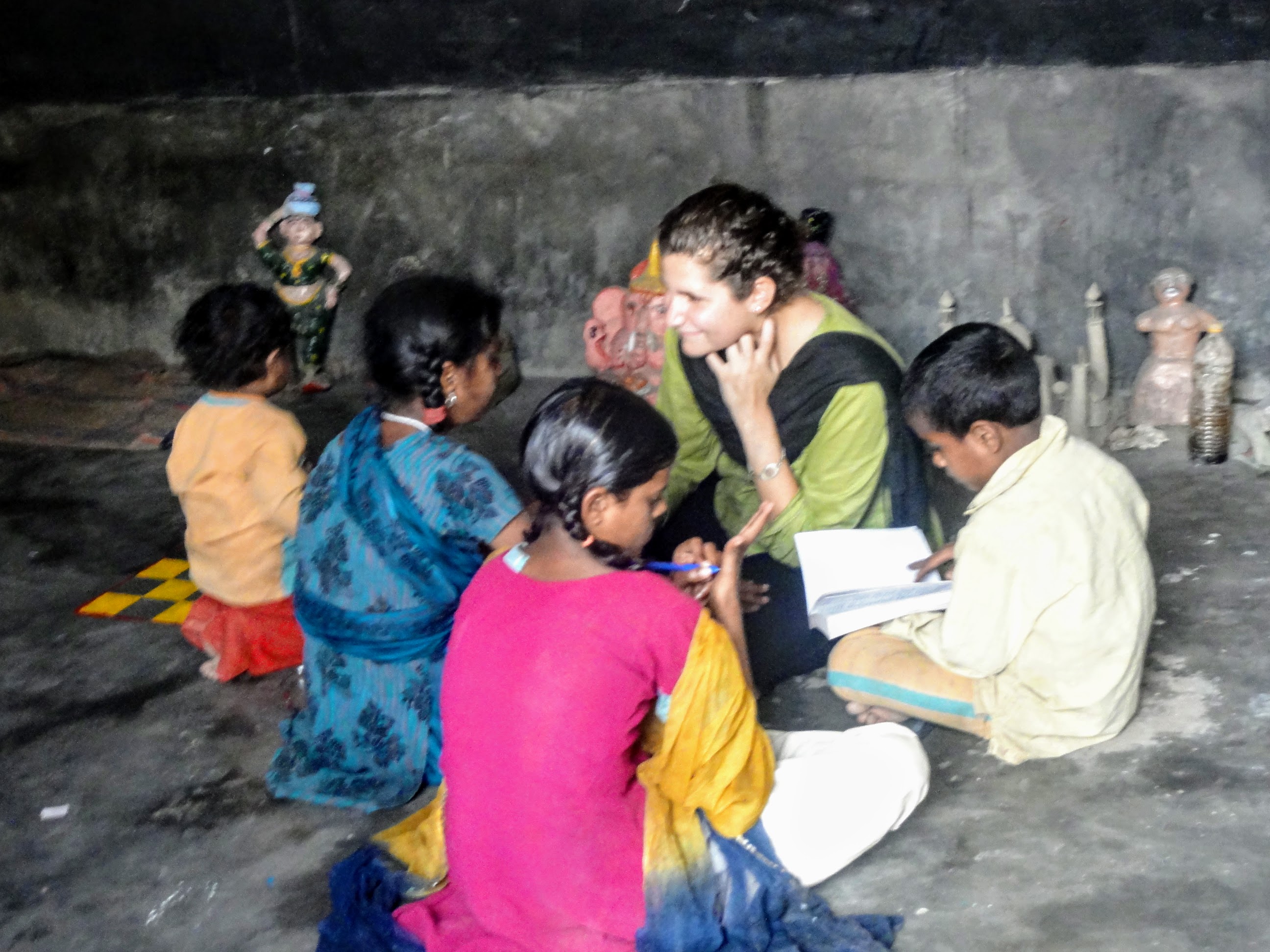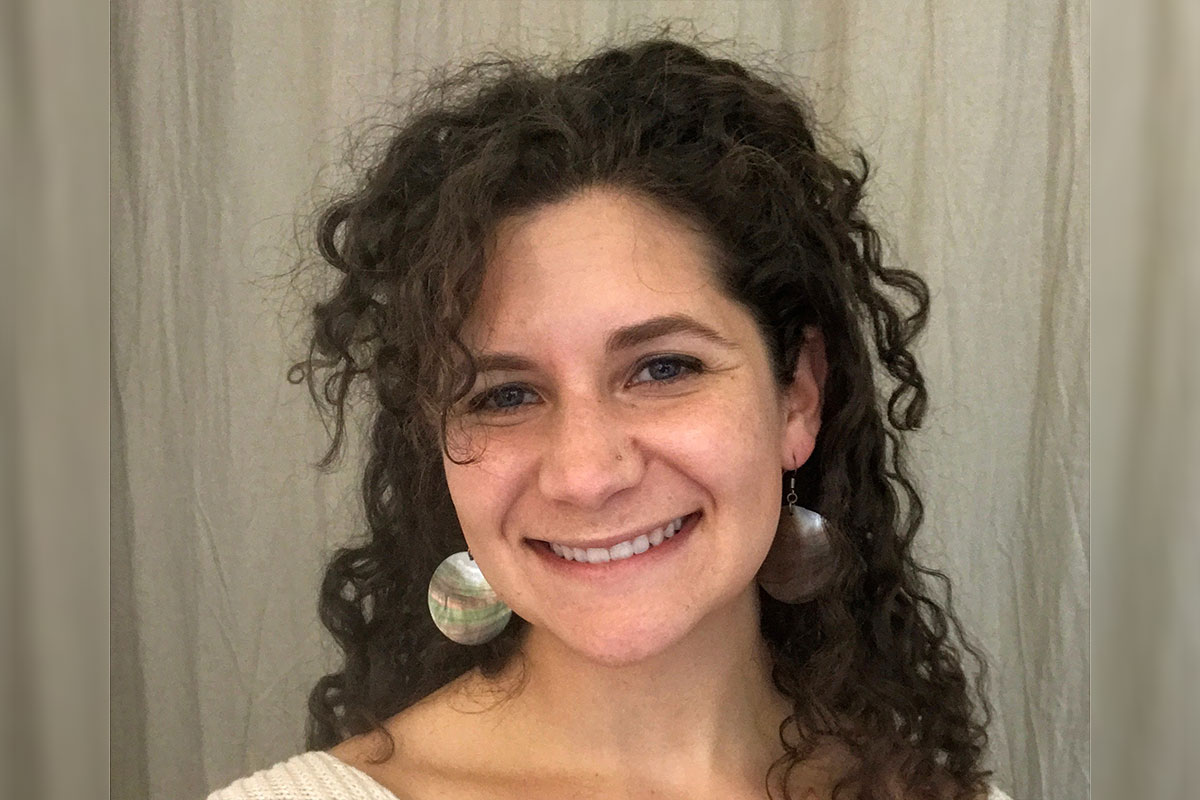Last year, as a Clinical Classroom Consultant for Teachers College’s School-Based Mental Health Collaboration in a second-grade classroom in West Harlem, Helen Feldman was drawn to a silent little boy who sat with his face hidden in his hoodie.
Feldman made a point of stopping by the boy’s desk each week that she was in the classroom, and gradually he began to speak in class. One day he asked to talk with her privately and revealed difficult issues that were happening at home.
I was a child who erred on the side of being quiet and shy. So I know that just because a child is not demanding attention doesn’t mean that he isn’t just as hungry for it.
— Helen Feldman (M.A. ’20)
“I was a child who erred on the side of being quiet and shy,” Feldman recalls. “So I know that just because a child is not demanding attention doesn’t mean that he isn’t just as hungry for it.”
[Read a story about the School-Based Mental Health Collaboration, which includes a recording of a talk featuring Feldman and the program’s director, Nancy Eppler-Wolff. Read a special report on TC’s efforts to help schools address the psychological and emotional needs of children during the COVID pandemic.]
Listening for silenced voices is the common thread in a journey that has taken Feldman from an undergraduate major in sociology to advocacy work to her current pursuit of a doctorate in clinical psychology at City College, CUNY.
That journey began after high school, when she lived with a family in Varanasi, India. She learned about the region’s language, history and culture, and studied yoga and Ayurvedic medicine, which focuses on diet, exercise and lifestyle. She also worked with the children of sex workers at an NGO called Guria, providing daycare, teaching them math skills, and arranging legal representation for women who had been trafficked.
“Some people are born into the sex-worker caste, and there is huge discrimination against them,” says Feldman, who returned to Varanasi during her junior year abroad from Colorado College.
She subsequently worked with Amnesty International and ECPAT-USA, a member of a worldwide network of organizations seeking to end the sexual exploitation of children.

ADVOCACY ROOTS Feldman worked at Guria, an NGO dedicated to ending second-generation prostitution and sex trafficking in Northern India. (Photo courtesy Helen Feldman)
“I was involved from an advocacy/policy/legal framework against trafficking,” she says. “But I found I was becoming more interested in working with the people who’d been trafficked. I began reading about trauma-informed care and decided to transition to the mental health field.”
At TC, working in the Psychotherapy, Affirmation & Disclosure Lab of Barry Farber, Professor of Psychology & Education, Feldman discovered psychoanalytic and psychodynamic theory.
Trying to understand the person from their vantage point, which is really rare in child work. Understanding where a person comes from, their community and cultural background. It all seems vitally important to me in trying to understand another human being.
— Helen Feldman (M.A. ’20)
“A psychodynamic approach is to be interested in the meaning of something,” she says. “Trying to understand the person from their vantage point, which is really rare in child work. Understanding where a person comes from, their community and cultural background. It all seems vitally important to me in trying to understand another human being.”
She became interested in the ideas of psychologists such as John Bowlby and Donald Winnicott — in particular “attachment theory,” which, as Feldman puts it, holds that “our first relationships with parents and caregivers create a template for how we approach all our future relationships.”

EXTENDED FAMILY Feldman with her host family in Varanasi, India. (Photo courtesy Helen Feldman)
Yet her interest in the more physically-oriented, non-Western approaches she’d discovered in India remained strong, and she ultimately enrolled in TC’s Spirituality Mind Body Institute led by Lisa Miller, Professor of Psychology & Education.
“I have a very strong interest in how trauma lodges in the body,” Feldman says.
She brought that orientation to her work with the School-Based Mental Health Collaboration, leading social and emotional learning classes in which she taught young children to recognize and regulate their emotions by paying attention to the body’s signals. With the COVID-19 pandemic, she sees interest increasing in this kind of work. “I think there is a sea change of people recognizing that mental health and wellbeing is just as important for children to be learning as academic learning.”
Feldman doesn’t know yet exactly what form her career will take next — “I hope to work with children, adolescents, siblings, parents, couples — I’m really interested in the family unit and different notions of family across cultures.” she says.
But regardless, she’ll be focused on understanding how others see and understand the world:
“I see the individual as residing within so many different webs of connection.”
— Joe Levine
[Do you know an Early Riser — a current student or recent TC alumnus making a mark in their field? Contact us at views@tc.columbia.edu]

